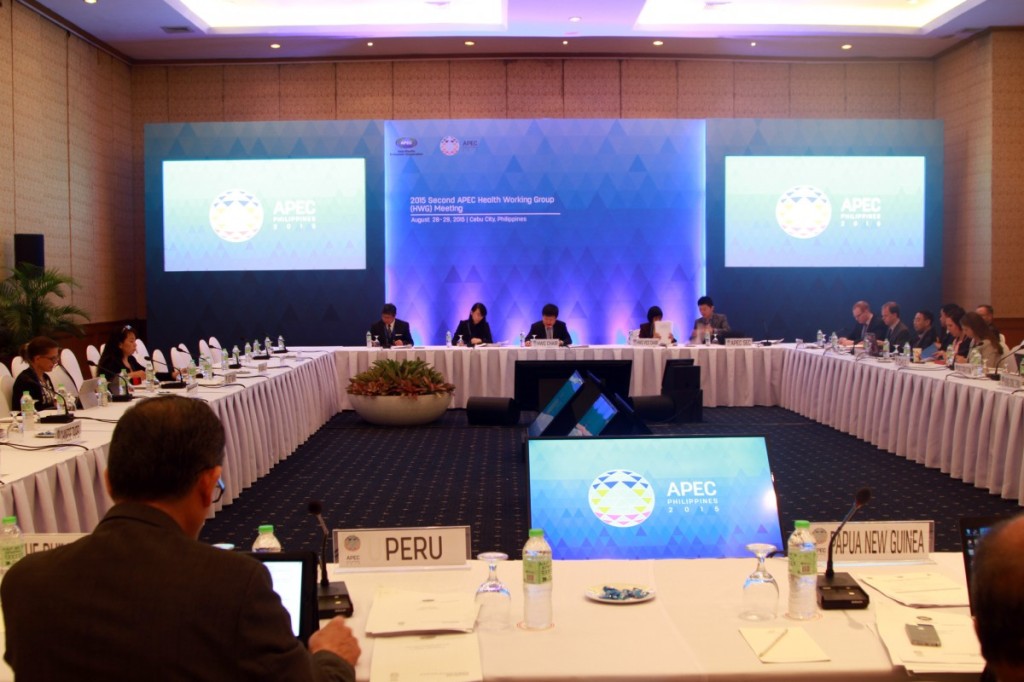CEBU CITY – The Philippines through the Department of Health (DOH) called on member economies of the Asia Pacific Economic Cooperation (APEC) to promote good health in order to stimulate and sustain economic and social development.
The APEC 2015 theme, “Building Inclusive Economies, Building a Better World”, underscores the significance of promotion in economic cooperation and advancement of inclusive growth in the Asia-Pacific Region to attain productivity and enhance the quality of life of populations across the region, the DOH said in a statement.
The Philippines identifies four priority areas in drafting the roadmap for the Free Trade Area of the Asia Pacific. These are: (1) enhancing regional integration, (2) mainstreaming small and medium enterprises (SMEs) in global and regional markets, (3) investing in human capital development, and (4) building sustainable and resilient economies.
In this regard, APEC recognizes the changing landscape of global health challenges, and the “double burden” of disease resulting from economic and health trends across the region.
“Good health allows citizens to reach their full productive potential, and the innovations that drive good health provide an astounding economic return.” Health Secretary Janette P. Loreto-Garin emphasized.
The Health Working Group (HWG) and the Life Sciences Innovation Forum (LSIF) discussed the results of new initiatives and provided recommendations in preparation for the APEC Leaders’ Meeting in November.
The four key priority actions are:
- Roadmap for the “Healthy Asia Pacific 2020 Initiative” which covers the critical success factors and immediate actions to ensure that the initiative is implemented in a meaningful, sustainable, cost-effective way to mitigate threats to the region’s people, trade and economic security;
- The need to address the continuous rise of infectious diseases and anti-microbial resistance especially those acquired in health care and institutional settings;
- Initiating promotion of both physical and mental well-being particularly addressing the increase of chronic diseases and promoting mental health and reduce its stigma; and
- emphasizing on the fiscal implications of ill-health reiterating that as more people are forced to retire early because of ill-health, the economy will become less productive.
Moreover, policy makers, experts and stakeholders from among the 21 economies convened last August 24 to finalize a Policy Toolkit which will be a checklist of recommendations to help governments, companies, and non-governmental organizations (NGOs) in improving health related barriers to women’s ability to enter, remain, and rise in the labor force.
The said toolkit will be launched on September 16, 2015 in PICC Manila.
“Women’s empowerment and the promotion of gender equality are keys to achieving sustainable economic development in APEC. Untold millions of women in the Asia-Pacific region have the potential to contribute more fully to their economies. Higher rates of female labor force participation would also counter shrinking labor pools due to variable birth rates and rapidly aging populations. These are facts that need strengthened policies in order to collect best practices. This is where APEC can contribute.” Garin explained.
Prior to the high-level meeting, the Asia-Pacific Economic Cooperation (APEC) recognized the Philippines with the APEC Lighthouse Award for Business Ethics for the collective contribution of the country’s government, private business sector and civil society in developing and implementing guidance on ethical business practices covering bio-pharmaceuticals and medical devices.
“APEC provides a unique platform for promoting innovation in the health sector and supporting the broader trade and investment agenda. We hope to obtain the meaningful results from the APEC platform of liberalization, facilitation, economic and technical cooperation for both human and economic development.” Garin concluded. – BusinessNewsAsia.com
